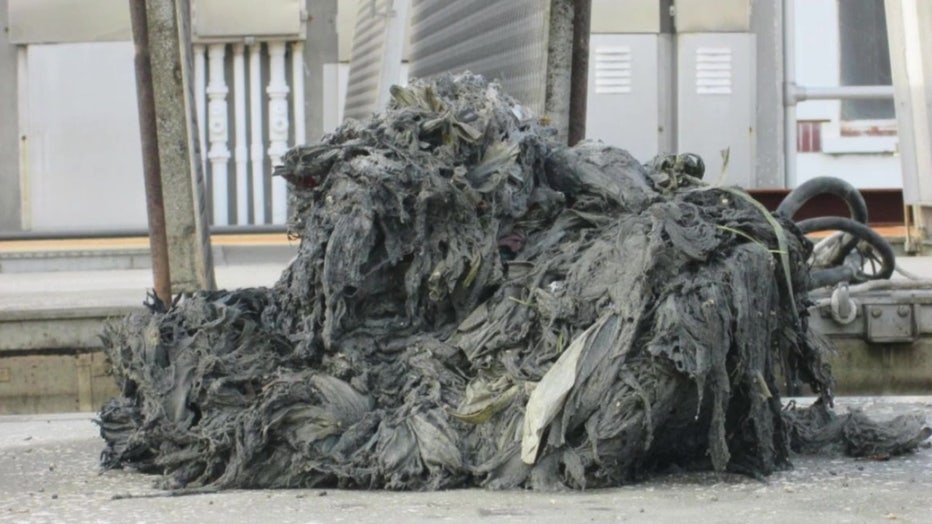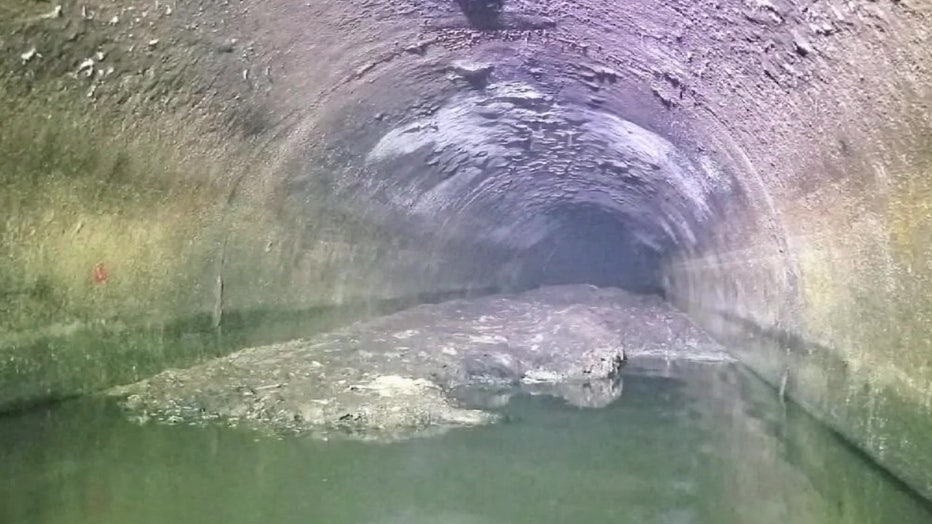City of Tampa raising awareness of new regulations on cooking grease, oil disposal

New regulations aim to fight 'Fat-Bergs'
New state regulations just went into effect in hopes of reducing costly clogs caused by grease going down a drain.
TAMPA, Fla. - The City of Tampa launched a campaign Tuesday to get the word out about new state regulations regarding the disposal of cooking grease and oil.
The new rules, which went into effect July 1, require restaurants to pump out used grease, and its accompanying dirty water simultaneously, without letting any water remain in the grease trap. Previously, crews could leave behind some "gray water," during, what's called, a "pump and return" system, which is now forbidden.
This strengthens a 2006 city ordinance that set certain requirements for grease and oil disposal, as city leaders tried to reduce the number of so-called "Fat-Bergs." These are rock-like masses, resembling small, gray icebergs, that form inside drains and pipes due to the combination of hardened grease, oil and non-biodegradable items, such as wipes.

"When the grease gets down in there, it hardens up," said Eric Weiss, Tampa's Waste Management Director. "Ironically, a lot of the time, flushable wipes – if you ever heard that, they're not flushable, and they don't break down – so it's really a perfect storm of grease with these flushable wipes."
This new law also requires grease waste haulers to maintain a service manifest, documenting that the grease waste they collect is disposed of at a permitted or certified waste management facility that is authorized to receive grease waste.
Manifests will be reviewed by the Wastewater Department's grease management program inspectors during routine inspections of food service establishments.

The City of Tampa began sending out mailers explaining the change in state law to restaurants and commercial kitchens.
"Wastewater overflows from grease was the number one cause of overflows in the city of Tampa," said Weiss, adding restaurants used to be the main violators. Following the 2006 ordinance, however, the majority of wastewater overflow issues have involved residences. Crews still respond to at least one overflow call a day.
Weiss is urging the public to refrain from flusing wipes, even ones labeled "flushable." He said grease should be poured into a bag and thrown in the trash.

